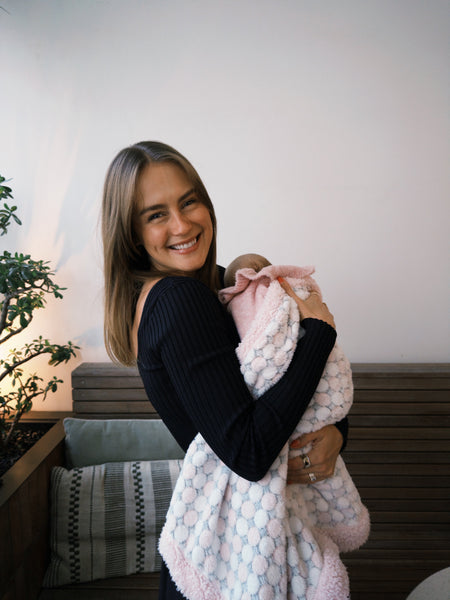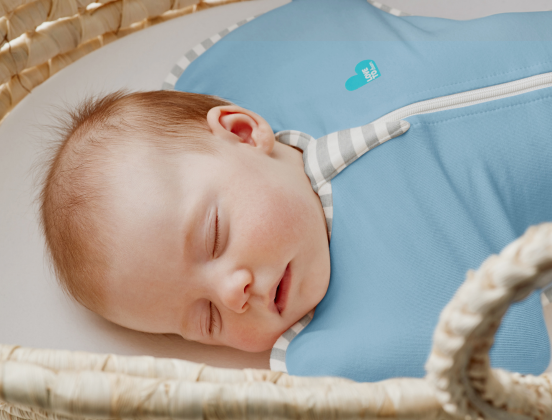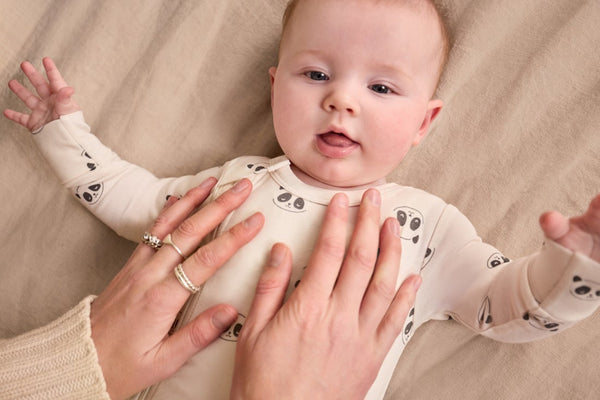Why is a baby bedtime routine important?
- A routine can reinforce your baby’s natural circadian rhythms
- Helps to create positive sleep habits by providing sleep cues
- A routine may help during sleep regressions
- Routine can help improve settling problems
- The daily ritual can be relaxing for parent/caregiver and provide a nice bonding experience
- Bedtime routines can lessen the need for sleep aids over time
When should you start a bedtime routine for your baby?
There’s no need to put pressure on yourself to establish a newborn bedtime routine. In the first 6-8 weeks, your baby needs some time develop and become acquainted with life on the outside. There is no harm in offering associations to sleep during this time, however there is no pressure to do so. Around 6-8 weeks is a good time to begin to introduce a routine for sleep.
What time should your baby go to bed?
When creating a baby sleep routine, your little one should go to bed at a consistent time each night. It should be a time that fits with your feeding schedule and family schedule. Around 7:00-8:00pm is a good place to start.
What is a positive bedtime routine for your baby?
It’s important to create a bedtime baby routine that can be accommodated into your family schedule and that can be easily done each night. Your routine doesn’t need to be elaborate or long, it just needs to be consistent. Think about sensory cues that will help your baby build associations to bedtime. Here’s an example of a simple and positive sleep routine:
1. Bathe baby
Give baby a warm, relaxing bath. You could also consider using some calming scents like lavender or mandarin, if you feel to. Smell can provide an additional sleep association.
2. Massage
Give baby a gentle massage for a few minutes after bath. Or if you prefer the express version, a little massage for the hands or feet.
3. Dress baby in a comfortable sleepsuit or bodysuit
Make sure you dress your baby in a breathable, temperature appropriate sleepsuit or bodysuit.
4. Swaddle your baby
Nothing could be quite as cosy as being wrapped up snuggly in a swaddle or swaddle up before drifting off the land of slumber. The swaddle provides your baby with a sense of security and helps calm any sudden reflexes during sleep.
5. Read your baby a story or sing them a short song
The comfort of your voice, whether reading or singing a favourite tune, is another great way to create a relaxed, calming and familiar environment.
6. Feed baby
Feeding your baby before bed will help them to sleep longer. If they are well fed it will be easier for them to feel satisfied enough to nod off for their night time sleep.
7. Put baby down in bassinet or cot
Putting baby down to bed in the same place each night, signals it is bedtime and provides familiarity.
8. Turn out the lights
Darkening the room signals to baby it’s time to sleep.
Daytime naps can also benefit from routine. Whilst it’s not entirely practical to repeat the night-time routine for day naps, a basic, abridged routine for during the day can also be helpful.







